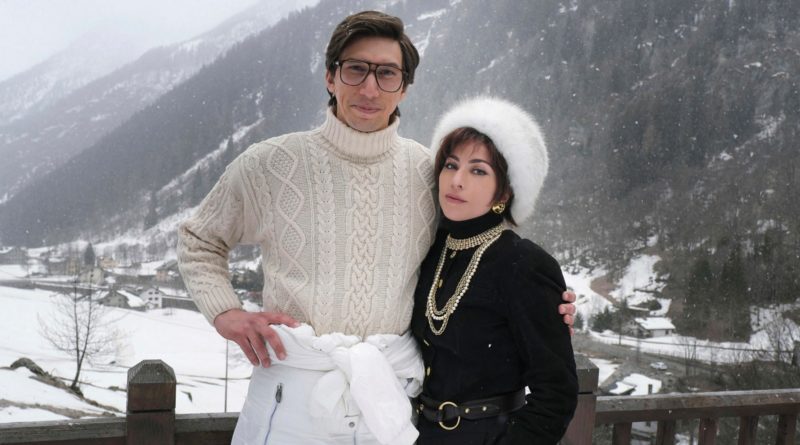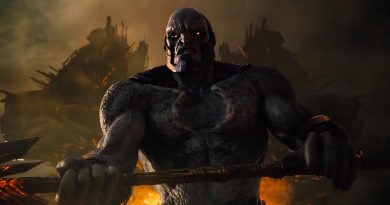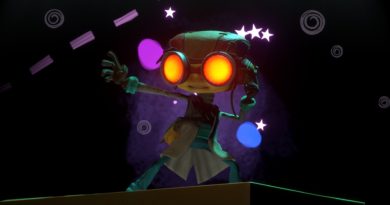House of Gucci Review: Flamboyant Performances, Beige Storytelling
Any fan of our podcast will tell you that we here at Under the Wheels are fans of Sir Ridley Scott. He pioneered hard science fiction storytelling in movies like Alien and Blade Runner and brought back the historical sword-and-sandals epic with Gladiator and Kingdom of Heaven. He’s even done some phenomenal, if often overlooked, work in more contemporary works like Black Rain and Thelma and Louise and has been able to explore the 60’s with movies like American Gangster and All the Money in the World.
Scott’s latest movie, House of Gucci, falls into the latter, and like many of Scott’s films, it is a somewhat strange beast and a little hard to classically review. I’m going to try to review it anyways.
House of Gucci covers the love affair between Patrizia Reggiani (Lady Gaga) and Maurizio Gucci (Adam Driver) from 1978 to about 1995, when events take a turn for the tragic; this movie, however, is not quite a love story. It also covers how Gucci was able to rebrand itself from an archaic fashion pariah brand to a new, cutting edge designer while at the same time transitioning from a family empire to just another part of a corporate entity, but it is not power-driven epic. It shows how greedy people can manipulate the system and corrupt and destroy the people they love, but it never really feels like a Machiavellian storyline. In short, the movie feels like a movie that has a lot of storylines pushing us forward but nothing to guide us where to go.
Here is what I mean: the start of the movie frames Patrizia Reggiani as the protagonist, as she is the audience entry point into the world of Gucci. Yet the last act of the movie focuses so strongly on Maurizio that you almost forget she is there, and you wonder what her point is in this aspect of the story except to be the scorned wife, which feels like it plays very little into what is the focus of that moment of the story – the transition of the Gucci Brand.
In some respects, House of Gucci feels like a documentary in the way that it tries to tell the story as almost “objectively” as the timeline dictates instead of using a single character as the driving force. It also means that some things that should be highlighted – Maurizio’s development into a cutthroat business man and member of the Gucci family, for example – feels a bit more tempered and subtle.
All of this is part of Scott’s skill as a storyteller and makes the film feel unique, if not a bit plodding. It may be too much to ask for the film to focus on someone who can anchor the story a bit better – having all the focus on Maurizio as the lead instead of choosing Patrizia as the focus character, for example – may have kept me from questioning why I was watching what I was watching.
The fact that I was engaged as I was is a testament to Scott’s skill as a storyteller. The camerawork by Dariusz Wolski and editing by Claire Simpson are, as per usual for Ridley Scott, very good. His use of non-diegetic music is particularly amusing, if also a little too on the nose in some places. The production design by Arthur Max is also fantastic, reflecting the excess of the time period for this family all over the lavishly designed locales, set pieces, and set decor. Janty Yates shows once again why she is one of the best costume designers in the movie – you can chart the character’s successes and failures purely based off the costumes they wear. Harry Gregson-Williams’s synth-heavy score is great to listen to as well, complimenting the vibe of the rest of the non-original music through the movie.
The performances are very similar to the production design. Lady Gaga does a good, if borderline over-the-top, transformative performance as Patrizia. Some people might find her accent a little too grating and some of her performance a bit too out there, but the fact that I was never able to clearly tell if she loved Maurizio or just the money – even to the end of the movie – made me think Gaga did a fantastic job playing in the gray areas of the morality of the character-as-written. Adam Driver does another good job of grounding this movie, relying more on subtlety and his natural on-screen charisma and talent as he slowly becomes a corrupted monster of a business owner. Al Pacino gives a very Al Pacino performance and it’s just as fun, if not more fun, than ever. Jeremy Irons adds a lot of subtle depth to a very one-note character as Maurizio’s father and Al Pacino’s brother and fashion designing god. The only person I had a problem with was Jared Leto, who did his usual Leto thing and chose putting on a big caricatured performance rather than creating a character. It was the equivalent between the idiot son and what people think Italians talk like, hand movements and bad Mario Bros. accent combined into a very pungent meatball.
House of Gucci isn’t a bad movie, but much like its preproduction controversy, it feels like a very unfocused movie. It’s certainly not the worst thing this reviewer has seen, but it also feels like it’s missing something and that it is trying to get by on its lead performance by Lady Gaga and Ridley Scott’s innate skill. In lesser hands, this would have been awful, but because of the team that crafted the movie, it’s at least a solid curiosity.
Rating: Low Witness.




